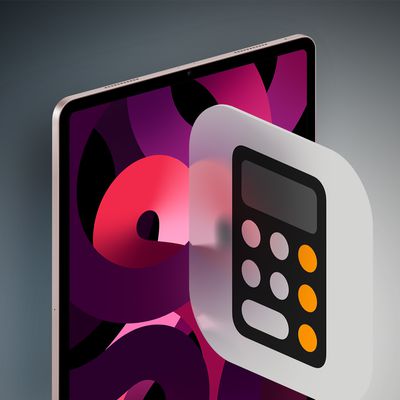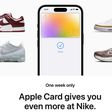Earlier today, a report from The New York Times highlighted Apple's removal of a number of App Store apps that had allowed users to monitor usage of their devices or those used by their children. The report suggests that Apple's move to pull the apps is related to having rolled out its own Screen Time feature in iOS 12 that competes in some ways with these apps, raising concerns over anticompetitive behavior.

Over the past year, Apple has removed or restricted at least 11 of the 17 most downloaded screen-time and parental-control apps, according to an analysis by The New York Times and Sensor Tower, an app-data firm. Apple has also clamped down on a number of lesser-known apps.
In some cases, Apple forced companies to remove features that allowed parents to control their children’s devices or that blocked children’s access to certain apps and adult content. In other cases, it simply pulled the apps from its App Store.
The report quotes several developers who had their apps removed, including one who says the removal came "out of the blue with no warning." Apple is facing several complaints related to the moves, with a pair of developers filing with the European Union's competition office and Russian cybersecurity firm Kaspersky Lab filing an antitrust complaint in that country.
The New York Times shared a brief statement from an Apple spokeswoman saying that Apple treats "all apps the same," including ones that compete with Apple's own features like Screen Time. The spokeswoman stated that the affected apps "could gain too much information from users' devices."
After reading the article, MacRumors reader Zachary Robinson emailed Tim Cook to express concern over the situation, and earlier today he received a thorough response from Phil Schiller outlining that Apple's removal of these apps is due to their use of Mobile Device Management (MDM) technology to monitor everything that happens on the user's phone.
Schiller notes that MDM technology is intended for enterprise users to install on company-owned devices, giving them easy access to and control over those devices for management purposes. The alternative usage of MDM technology by third-party developers for screen time monitoring or parental controls raises significant privacy and security concerns, however, and Apple has moved to address those issues.
The full email from Schiller, which appears to be authentic based on our examination of the included headers:
Thank you for being a fan of Apple and for your email.
I would like to assure you that the App Store team has acted extremely responsibly in this matter, helping to protect our children from technologies that could be used to violate their privacy and security. After you learn of some of the facts I hope that you agree.
Unfortunately the New York Times article you reference did not share our complete statement, nor explain the risks to children had Apple not acted on their behalf. Apple has long supported providing apps on the App Store, that work like our ScreenTime feature, to help parents manage their children’s access to technology and we will continue to encourage development of these apps. There are many great apps for parents on the App Store, like “Moment - Balance Screen Time” by Moment Health and “Verizon Smart Family” by Verizon Wireless.
However, over the last year we became aware that some parental management apps were using a technology called Mobile Device Management or “MDM” and installing an MDM Profile as a method to limit and control use of these devices. MDM is a technology that gives one party access to and control over many devices, it was meant to be used by a company on it’s own mobile devices as a management tool, where that company has a right to all of the data and use of the devices. The MDM technology is not intended to enable a developer to have access to and control over consumers’ data and devices, but the apps we removed from the store did just that. No one, except you, should have unrestricted access to manage your child’s device, know their location, track their app use, control their mail accounts, web surfing, camera use, network access, and even remotely erase their devices. Further, security research has shown that there is risk that MDM profiles could be used as a technology for hacker attacks by assisting them in installing apps for malicious purposes on users’ devices.
When the App Store team investigated the use of MDM technology by some developers of apps for managing kids devices and learned the risk they create to user privacy and security, we asked these developers to stop using MDM technology in their apps. Protecting user privacy and security is paramount in the Apple ecosystem and we have important App Store guidelines to not allow apps that could pose a threat to consumers privacy and security. We will continue to provide features, like ScreenTime, designed to help parents manage their children’s access to technology and we will work with developers to offer many great apps on the App Store for these uses, using technologies that are safe and private for us and our children.
Thank you,
Phil
Apple's dedication to privacy and security is well-known, so it's unsurprising the company took steps to address concerns related to how these apps were monitoring device usage. But for some users who had come to prefer the capabilities of these apps such as cross-platform compatibility with Android devices in their households and more robust app controls, Apple's Screen Time feature feels like a step backward.



















Top Rated Comments
Honestly this kind of irks me at the NYT. How do you write an article on something like this and leave out part of the companies statement that at best exonerates them and at worst at least explains their actions. The NYT is supposed to have journalistic integrity. Way to feed fuel to "someones" fire. I'd support a complete ban from the App Store when any app can access my kids location without permission.
ALL YOUR KID ARE BELONG TO US.